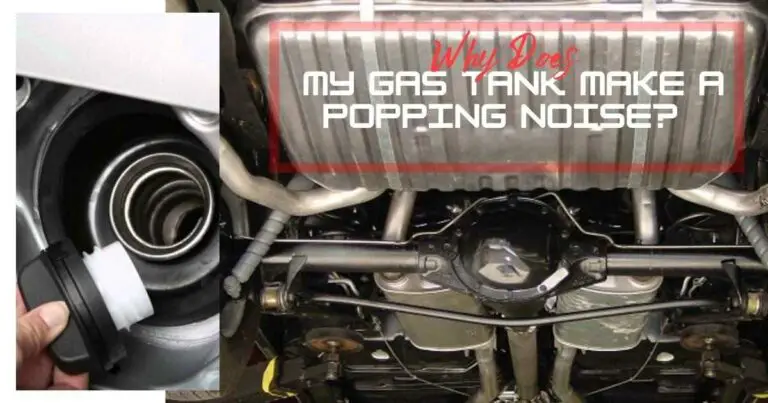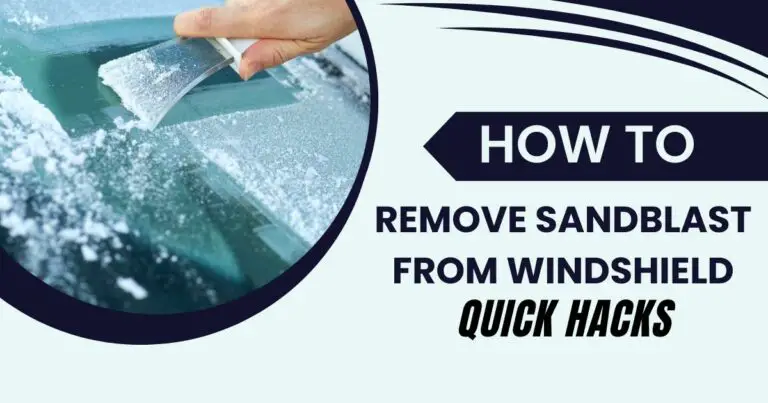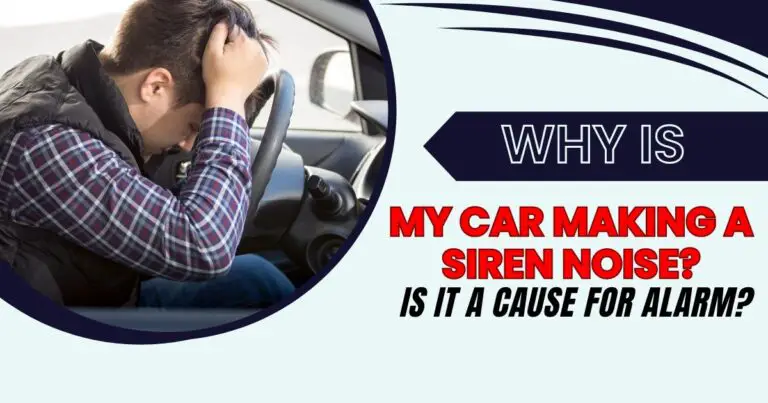Why Does My Car Smell Like Chlorine? Common Causes and Solutions
Embarking on a journey behind the wheel of your vehicle should be an experience defined by comfort, convenience, and the allure of the open road. But sometimes, you might notice a strange smell that reminds you of chlorine, like what you’d find around a swimming pool. This is not something you’d expect in your car, and it can be confusing.
The smell might seem strange, but it often serves as a manifestation of underlying issues that warrant investigation. By the end of this article, you should have a better idea of why your car is smelling like chlorine and what you can do to make it smell nice again.
Why Does My Car Smell Like Chlorine?
Cars are like big puzzles made up of lots of different parts. Sometimes, when these parts aren’t working as they should, they can create weird smells, including chlorine odor. Other times, things from the outside environment can get into your car and make it smell strange. That said, let’s take a closer look at what might be causing the chlorine smell in car!

Mechanical Issues
Much like your body experiences hiccups or discomfort occasionally, your car’s components can also encounter problems. When one of these parts isn’t functioning properly, it can lead to a chain reaction of issues, including the release of unusual odors.
For example, a faulty fuel system might lead to the emission of unusual fumes, resulting in a chlorine-like smell. Similarly, issues with the transmission can also contribute to unpleasant smells. These smells often serve as early warning signs, which allows you to address the problems before they escalate.
Air Conditioning Problems
Your car’s air conditioning system plays a critical role in keeping you cool and comfortable while driving. However, like any other part of your vehicle, it can experience issues over time. For instance, if there’s a buildup of dirt, dust, or moisture within the air conditioning system, it can lead to several problems, including the presence of unusual smells.
Moisture, in particular, can create a breeding ground for mold, mildew, and bacteria. These microorganisms thrive in damp environments, and if they start growing inside your air conditioning system, they can produce a distinctive chlorine-like odor when the AC is turned on.
When you switch on the air conditioning, the air passes through the system, carrying along the odor from the mold and bacteria. This is why you might notice the chlorine smell more prominently when using the AC.
Cleaning Products or Air Fresheners
Keeping your car clean and smelling nice is important for a comfortable driving experience. Many people use various cleaning products and air fresheners to achieve this. However, most of the cleaning products and air fresheners come with scents that closely resemble chlorine.
While these scents are meant to evoke feelings of cleanliness and freshness they can sometimes inadvertently contribute to a chlorine-like smell in your car. Over time, this scent can become more pronounced, and you might start to notice an unpleasant smell when you enter your car.
Leaks or Spills
Your car is a dynamic environment where different substances come into play. Sometimes, liquids with chlorine-based ingredients can unintentionally spill within the interior. These substances tend to cling to surfaces, and their strong aroma can linger for a long time.
The combination of the enclosed space within your car and the strong-smelling liquid can result in a chlorine odor that’s hard to ignore. Even though the source of the smell might be a small spill, its impact can be significant.
Chemical Reactions
The car’s interior is made up of various materials, like plastics, fabrics, and foams. Over time, these materials can change due to factors like heat, sunlight, and exposure to different substances. Sometimes, these changes can trigger chemical reactions that produce new smells, some of which might resemble chlorine.
For instance, some plastics used in car interiors may release volatile organic compounds when exposed to heat or sunlight. These reactions can sometimes create a combination of scents that might be reminiscent of chlorine.
Exhaust System Issues
Your car’s exhaust system plays a vital role in expelling gases produced by the engine during combustion. This system ensures that harmful gases are safely directed away from the vehicle and out into the environment.
However, if there’s a problem with the system, it can lead to the release of odors that you wouldn’t typically smell. For example, if there’s a malfunction or damage in the exhaust system, such as a leak or a failing catalytic converter, it can cause these gases to escape in places they shouldn’t.
The odor might also be due to the combustion process not happening properly or specific gases being released. In some cases, these unusual odors might be mistaken for chlorine, especially if they have a sharp or acrid quality.
Environmental Factors
Your car interacts with the world around it as you drive through different places and environments. Sometimes, external factors can influence the way your car smells. For instance, if you’ve been near a pool or an area with chlorine, the distinctive scent of chlorine might linger on your clothes, shoes, or belongings. When you hop into your car, that smell comes along for the ride.
How to Get Rid of Chlorine Smell in Car
Identify the source
Before attempting to eliminate the odor, try to determine the exact source of the chlorine smell. Once you’ve identified the likely source of the smell, you can take targeted actions to address it. For example, if it’s due to a spill, you can focus on cleaning and drying the affected area. Similarly, if it’s related to cleaning products, you can switch to milder alternatives, and so on.
Ventilation
Generally, letting some fresh air in helps neutralize and counteract the unpleasant smells gradually. This process also helps to dilute and replace the trapped, odorous air with clean air from the outside, effectively reducing the concentration of the smells.
To ensure proper ventilation, open all the windows and let fresh air circulate through your car. Allow the car to air out for a while to enable the air to circulate and carry away the unwanted odor. You can also leave your car parked in a well-ventilated area with the windows down to let fresh air flow through continuously.
However, keep in mind that while ventilation helps disperse odors, it might not completely eliminate them if the source of the smell is persistent. For long-term results, it’s essential to identify and address the underlying cause.
Clean the interior
Cleaning your car’s interior is an essential step in eliminating odors. Proper cleaning not only removes the source of the bad smells but also helps create a fresh and pleasant environment inside your car. Thoroughly clean your car’s interior, paying special attention to areas where the smell seems strongest.
Vacuum the carpets, seats, and floor mats to remove any debris or residue. You can also use a mild, non-fragranced cleaner to wipe down all interior surfaces, such as the dashboard, door panels, and center console. These measures not only help remove dirt and grime but also neutralize odors that might be clinging to these surfaces.
Remove contaminated items
If you suspect that a specific item is contributing to the smell, consider removing it from your car. Pay attention to your recent activities and the items you’ve introduced into your car to determine if they could be influencing the smell. This could include things like cleaning supplies, air fresheners, or objects that might have absorbed external odors.
Use baking soda
Baking soda is a natural deodorizer that is highly effective in absorbing and neutralizing odors. Its ability to absorb and neutralize odors makes it a practical solution for refreshing your car’s interior and eliminating the chlorine-like smell from your car.
For best results, sprinkle some baking soda on your car’s upholstery, carpets, and floor mats. Let it sit for a few hours or overnight, then vacuum it up. Depending on the intensity of the smell, you might need to repeat the baking soda treatment a few times to achieve the desired results.
Activated charcoal
Activated charcoal is a highly porous substance that has the ability to adsorb (not absorb) a wide range of particles, including odors and pollutants. It is commonly used as an effective natural deodorizer and air purifier.
Activated charcoal works through a process called adsorption, where molecules adhere to the surface of the charcoal. This principle allows it to effectively trap odor-causing molecules, which helps neutralize the smells.
Also Read: How to Get Rid of Smelly Windscreen Washer Fluid- Handy Tips
Place activated charcoal pouches in areas where the chlorine smell is noticeable or strongest. You can place them on the seats, under the seats, in the glove compartment, and other nooks and crannies of your car’s interior.
Air Fresheners
Air fresheners are products designed to improve the scent of the air within your car. When selecting an air freshener consider using an unscented air freshener or one with a mild, non-chlorine scent. Be cautious with strong fragrances, as they might mask the odor temporarily without addressing the underlying issue.
Professional cleaning
If the smell persists, you might want to consider getting your car professionally cleaned, including a deep cleaning of the interior, upholstery, and carpets. The best part you might be lucky enough to get some tips on how to prevent future odors and maintain a clean interior.
Mechanical checks
If you suspect that the chlorine smell in your car is stemming from a mechanical issue, it’s essential to take your car to a qualified mechanic for a thorough inspection. Mechanical problems can not only cause unpleasant odors but also potentially compromise the safety and functionality of your vehicle.
Parting Shot!
Dealing with a persistent and mysterious chlorine smell inside your car can indeed be frustrating and bothersome. Not only can the smell be unpleasant, but the inability to pinpoint its source can be irritating. Taking proactive steps to prevent the chlorine smell from occurring in the first place can help maintain a pleasant and odor-free environment within your car. Remember that patience is key when trying to eliminate stubborn odors. As such, it might take a combination of the above steps and some time for the smell to completely disappear.






